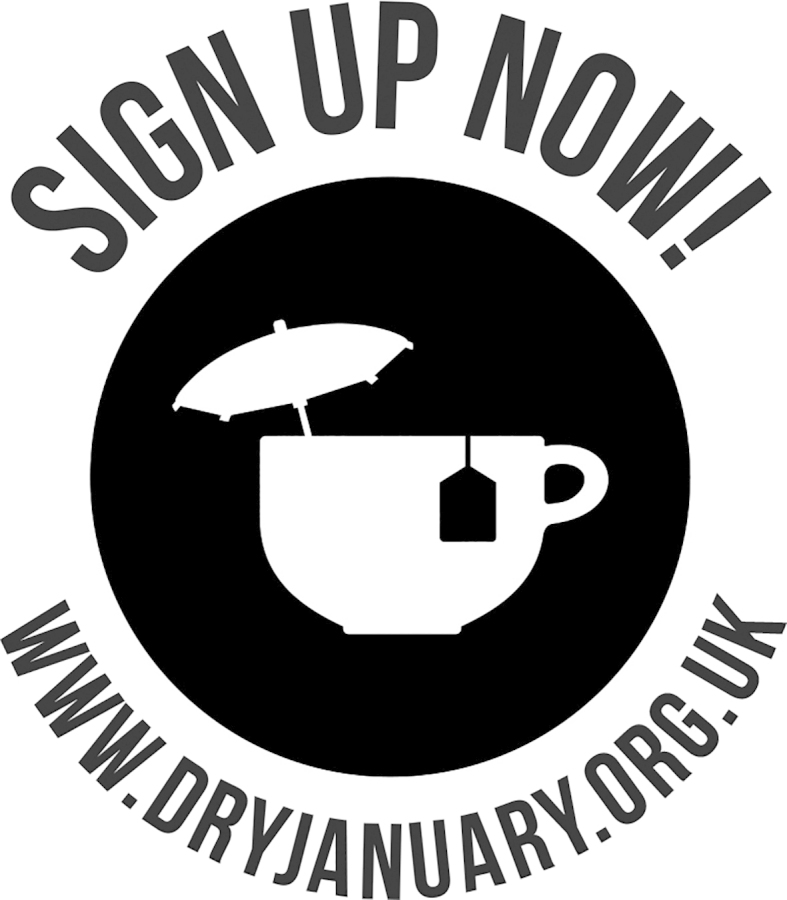Dry January is now a household term, and as Alcohol Concern launches its Dry January campaign for the fourth year, we hope even more people will take part in 2016.
The aim of our campaign is to start a new conversation about alcohol, to encourage people to consider and discuss their alcohol consumption and ultimately, to inspire behaviour change following a positive and fun-filled month of sobriety.
Over the past 3 years, the impetus has grown with over 2 million people in the UK participating in Dry January in 2015.
To be absolutely clear; this challenge is not a detox or for those with dependency issues. Instead, it’s aimed at the huge numbers of people who are steadily drinking a bit too much, too often, (exceeding recommended guidelines of alcohol consumption1) without realising the effect it may be having on their health.
THE BENEFITS OF ABSTAINING FROM ALCOHOL
Participants testify to how great a month off from alcohol can be; they sleep better, have more energy, some lose weight and save money, and others notice improvements in their skin and hair.
More recently, research from the Royal Free Hospital in London2 has shown that there are positive physiological effects to be gained from taking part in Dry January. The study, performed on moderate drinkers (those drinking around the levels of recommended limits), has shown people experiencing improvements in concentration and sleep patterns, as well as having reduced cholesterol and lower glucose levels, lower blood pressure, weight loss overall, and losing 40% of their liver fat.
OUR CAMPAIGN REALLY WORKS
As a behaviour change campaign, Alcohol Concern offers support through online communities and an email programme, encouraging people to persevere throughout the month and offering them advice on non-alcoholic drink alternatives, and also opportunities to speak to health professionals.
Research has proven that Dry January is an effective behaviour change campaign. The campaign was independently evaluated in 2014 by the University of Sussex and found 72% of participants had sustained reduced levels of harmful drinking (drinking over recommended limits) 6 months after completing a month alcohol free.3
Drinking alcohol is deeply embedded in British culture, and it’s often the case people are quizzed about why they’re not drinking. Dry January gives people a great excuse/reason and the confidence to carry on saying no thanks to alcohol, even after January has ended.
ENCOURAGING PATIENTS TO GIVE DRY JANUARY A GO
GPs are on the front line. Every day they see patients who may be drinking at above the recommended levels, (although this may not always be obvious), and those whose visit may be alcohol related. Alcohol is linked to over 60 medical conditions, including cancer, diabetes, depression, and hypertension.4 Although it can be difficult asking patients about their drinking behaviour, Dry January is a great way to broach the topic in a nonthreatening way, nudge patients to consider their drinking levels and encourage them to cut down.
In fact, almost all patients seeking medical treatment would benefit from taking part in Dry January since:
In the cold and flu season, drinking alcohol won’t aid recovery and can disturb sleep;
Alcohol can negatively interact with medication;
Alcohol contributes to anxiety, low mood and depression, and Dry January is a great opportunity to encourage patients to look at lifestyle issues that may be affecting their wellbeing;
Cutting out alcohol can help people achieve weight loss goals; and
Over 10% of high blood pressure in men is alcohol related.
LEADING BY EXAMPLE
You knew this was coming didn’t you? It’s not just patients who can benefit from Dry January, you can too, and ideally you’ll be leading the practice by example! So why not take the challenge at your practice and get everyone involved? After all, it will be easier to promote it to others if you’re doing it yourself.
You can sign yourself, other staff and patients up at www.dryjanuary.org.uk. Join in the conversation by following us on Twitter, @DryJanuary and liking us on Facebook.com/DryJanuary.

Alcohol Concern’s Dry January logo.
REFERENCES
- 1.Alcohol unit guidelines. https://www.drinkaware.co.uk/check-the-facts/what-is-alcohol/daily-guidelines (accessed 2 Dec 2015).
- 2.Royal Free London. NHS Foundation Trust Dry January results “staggering”. https://www.royalfree.nhs.uk/news-media/news/dry-january-results-staggering/ (accessed 1 Dec 2015).
- 3.Alcohol Concern Academic research reveals Dry January leads to less drinking all year round. https://www.alcoholconcern.org.uk/news/academic-research-reveals-dry-january-leads-less-drinking-year-round/ (accessed 1 Dec 2015). [Google Scholar]
- 4.World Health Organization Alcohol in the European Union Consumption, harm and policy approaches. http://www.euro.who.int/__data/assets/pdf_file/0003/160680/e96457.pdf (accessed 1 Dec 2015). [Google Scholar]


